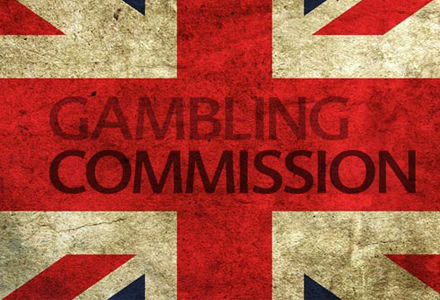 Although not mentioned in the speech made by the Queen last week, briefing notes attached to the speech included the mention of ‘other measures that will be laid before you’.
Although not mentioned in the speech made by the Queen last week, briefing notes attached to the speech included the mention of ‘other measures that will be laid before you’.
Included in these other measures was the Gambling (licensing and advertising) bill – an area of new law which is sure to be of next to no importance to the Queen herself. We all know what the bill is about – it is a move that will allow the UK government to cash in on the largest regulated gambling market in Europe that takes place within its shores.
Wedged in to make it look more complex than that are measures to enforce compliance with licences regarding protecting children and vulnerable adults, funding research and education of gambling addiction and tackling illegal betting and corruption in sport. Basically, things that are all done already by pretty much all of the operators that currently target the UK market.
Without even getting into the meat of the topic, that is one area where the new changes being introduced by the government will actually make no change to industry practices whatsoever.
Although many of the top iGaming bosses are unlikely to agree with this view, it certainly makes sense for the UK government to introduce this bill which will in turn introduce the Point of Consumption Tax (POCT). In this well-publicised time of austerity and hardship, who can blame them for attempting to get their hands on what Global Betting and Gaming Consultancy’s chief Warwick Bartlett estimates to be around £275 million per year.
But while it will boost the coffers of our ever-trustworthy government and is expected to have an impact on the bottom line, for us beavering away within the industry it’s hard to see that this will affect us greatly. So what changes will the POCT be the catalyst of?
For Staff
We’ve heard over the years how many businesses have moved themselves offshore in order to avoid tax. Betfair famously kept faith in the UK as long as they could before moving to Malta while other big name bookmakers have made their way off our relatively large island at one time or another.
One of the most vocal members of the opposition to the POCT has been William Hill CEO Ralph Topping. Topping has been adamant that the POCT will not force him to move the online divisions of Hills back to the UK.
A less outspoken CEO who shares the same views has been 32Red’s founder Ed Ware. Also on Gibraltar, Ware has built his company from scratch there and while the UK remains his company’s main market, they’ve never actually been based there.
He lists access to the Gibraltar Government, a high concentration of local online gambling professionals and quite simply a high quality of life as some of the reasons that he wouldn’t consider moving operations to the UK.
In other cases, the determination to stay away from the UK may come from stubbornness and a will to make a stand. Last year Topping even instructed lawyers to prepare a legal challenge to take on the government on the grounds that the POCT restricts the free movement of goods and services for tax purposes. But for those working at these offshore companies, even when the POCT does go through, there’s likely to be little change.
For Management
While there will be little impact at lower levels, the tremors will increase the further up the corporate tree you go. The main changes being felt by shareholders where applicable, and in other cases, company owners.
Speaking over a year ago when discussions of a POCT where in their early stages and it had first been mentioned in the budget, Ware explained why he felt this new system was certainly not the answer to the UK’s online gambling regulation issues.
“32Red spent more in the UK on marketing and advertising that we made in profits in 2011 and I am certain this well be the case again in 2012. It is a given that the introduction of a new tax will change how we currently model the business,” he said.
The move could also have a huge impact on smaller operators who rely on lower taxes in order to be able to survive. Companies who rely on lower taxes in order to be able to remain in profit may see themselves unable to stay in business – although this survival of the fittest-type situation isn’t necessarily a bad thing.
Ware explained: “It’s a certainty that some smaller operators’ businesses will be jeopardised. Casino margins are famously thin and from our perspective, the proposals are a step backwards for everyone.”
We’ve already seen how Rank thought the POCT was going to affect online businesses. They promptly shipped Blue Square off to Betfair at a low price in order to simply be rid of something that they expected to cause them more grief than joy. It will be interesting to see if more will now follow.
But while businesses will certainly see changes, they may be able to make some of their own. It won’t take much to transfer these taxes across to players by re-jigging game maths to decrease return to player percentages. The chances are this could be done without most players even noticing and even for those that do, if all operators take this approach then not much will change.
So while we may not know what the managers and owners of iGaming operators will be choosing to do in order to tackle the changes, it is at least apparent that changes will be taking place. But for all of those below the most senior levels, it will continue to be business as normal.
